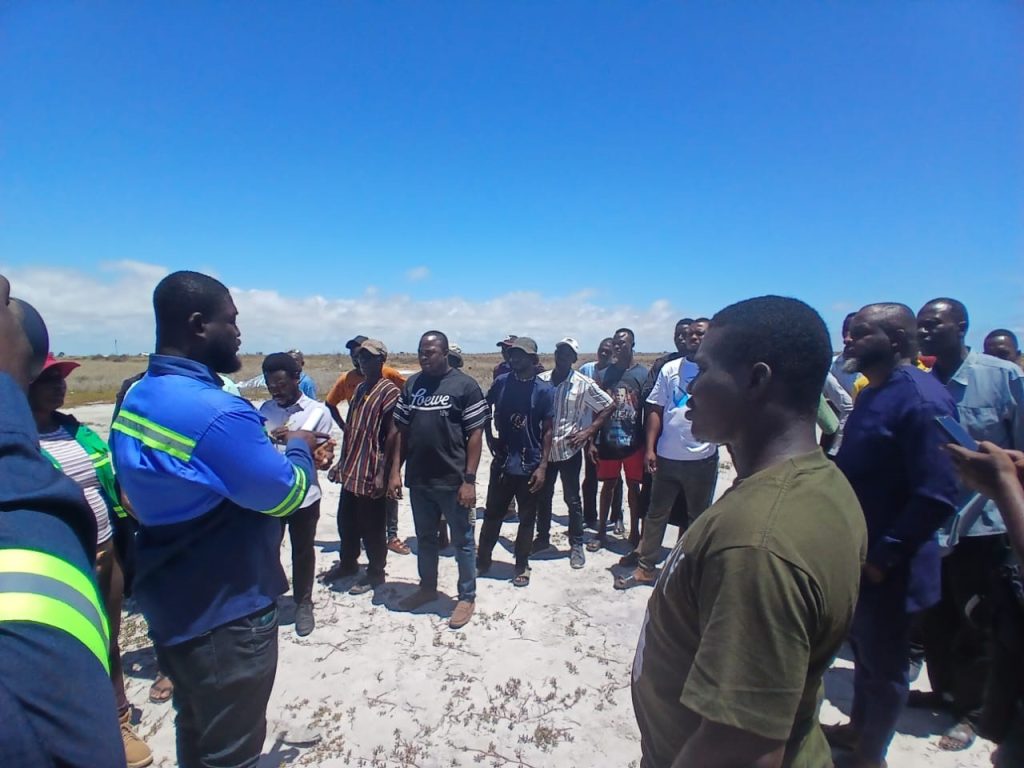By Opesika Tetteh Puplampu
Sege-Ada, Oct. 11, GNA – Mr Abdul Razak Adams, the Chief Executive Officer of Electrochem Ghana Limited (EGL), has revealed that Parliament’s request for his outfit to allocate portions of its concession to indigenous salt miners, has significantly expedited the implementation of the outgrowers scheme.
He said the company had allocated 2,000 acres of land within its concession for the communities and groups.
At a formal handover of allocated lands to three registered indigenous mining groups at Sege, in the Ada West District of the Greater Accra Region, Mr Adams said the request of Parliament, was in line with the company’s objectives and plans.
The beneficiary groups included the Ada Community Chiefs Association, the Ada Youth Forum for Development, and the Songornya Association.
He stated that eleven additional groups who had applied for land in the concession would be served in phase two of the allocation.
“I am pleased to announce that although the concession spans 41,000 acres, a considerable portion is occupied by mangroves, water bodies, settlements, churches, shrines, and other areas where the company does not intend to mine,” he emphasised.
Nene Dameh Sewu III, the Chief of Togbloku Okor and Secretary of the Ada Community Chiefs Association expressed profound gratitude for the company’s initiative to introduce the out-growers scheme.
He further noted that the initiative was genuine, despite allegations of deception, assuring however that should any such issues arise, they would find a resolution.
He told the Ghana News Agency that they were optimistic of gaining massively from the land allocated, since the company had a ready market for every salt they mined, which would go a long way to alleviate poverty in the land.

Mr Charley Amanatey, one of the beneficiaries, commended Electrochem’s management of the Ada Songor Lagoon, noting that the company’s involvement had brought significant benefits to most of the communities, with opposition coming mainly from individuals pursuing personal interests.
GNA